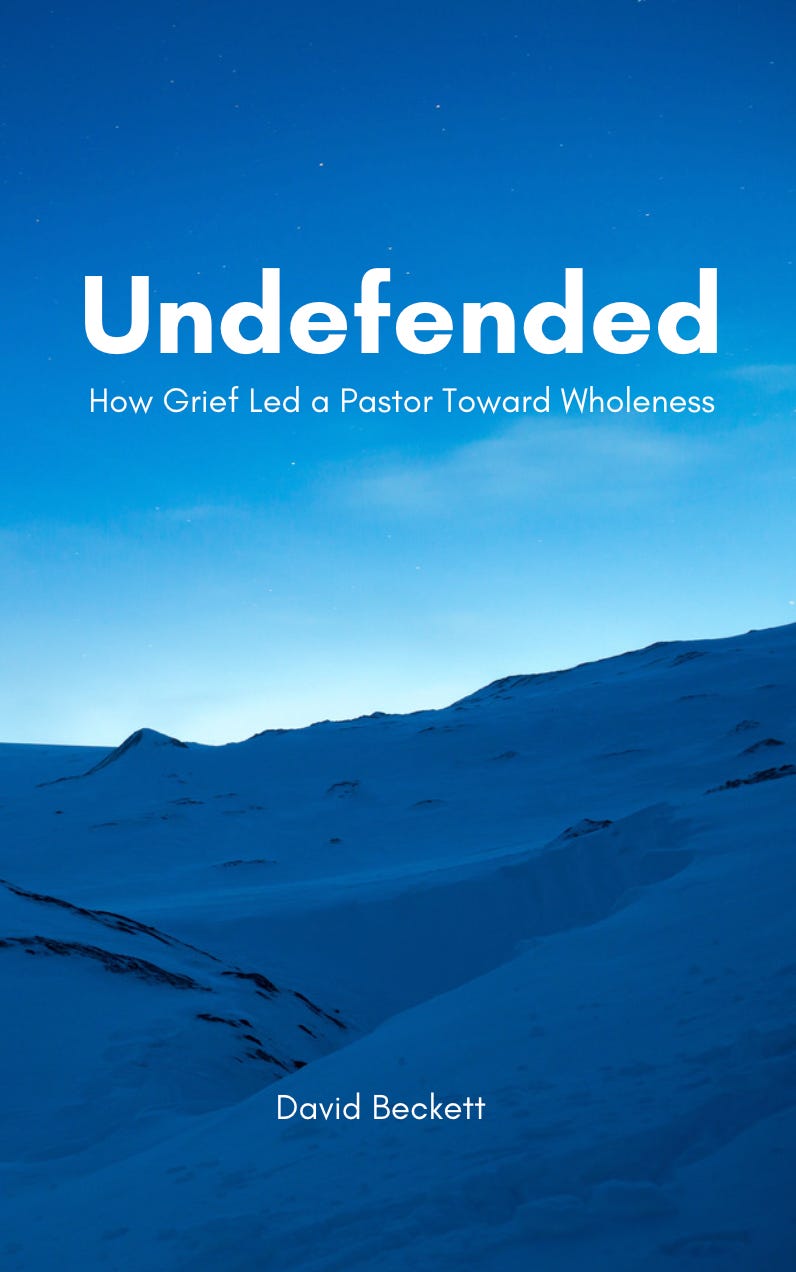Today, we wrap up our series on forgiveness. Here’s our first four weeks:
Once upon a time two brothers shared adjoining farms. For over 40 years they worked side by side, sharing equipment and helping each other out whenever needed. Then one day a rift developed. It began with a small misunderstanding and it grew into a major difference, and finally it exploded into an exchange of bitter words followed by months of angry silence.
One day the eldest brother, Pete, was out in his fields when a truck pulled up. Out jumped a man who approached Pete carrying a carpenter’s toolbox. “I’m looking for a few days work” he said. “Perhaps you would have a few small jobs I could do for you?”
“Well, yes I do,” said Peter. “See that creek down there, it’s the border between my brother’s farm and mine. Me brother keeps it nice and deep to stop me from setting one foot on his beloved farm. Well I’ll oblige him. I want you to take that timber over there by the barn and build me a new fence, a real tall one, so I don’t have to look over at my stinkin’ brother and his farm no more.”
The carpenter was glad to have the work, “No worries mate. I understand. Just point me to your post-hole digger and I’ll get the job done.”
So the carpenter set about working. Meanwhile farmer Pete drove into town to the cattle auction. When he returned at sunset he was shocked to see what the carpenter had done.
There was no fence. Instead the carpenter had built a bridge and walking across it was Pete’s younger brother. He held out his hand and spoke to his brother, “Pete, after all I’ve done to you these past few weeks I can’t believe you’d still reach out to me. You’re right. It’s time to bury the hatchet.”
The two brothers met at the middle of the bridge and embraced. They turned to see the carpenter hoist his toolbox on his shoulder. “No, wait! Stay a few days. I’ve a lot of other projects for you,” said farmer Pete. “I’d love to stay on,” the carpenter said, “but I have more bridges to build.”
Friends, I hope you’re in the process of allowing Love to build some bridges in your life. You may be collecting the materials to build it, or maybe you’ve started to walk across it. As we wrap up this series, may we celebrate the small steps of forward movement when it comes to forgiveness. Any part of any bridge we build is worth the effort.
Today, we’ll reflect on our Jesus story, review the steps in the Path of Forgiveness, and share some thoughts from Desmond Tutu on renewing or releasing the relationship.
Our Jesus story today lands us right in the middle of Jesus’ crucifixion. Jesus asks God to forgive those gathered. As usual, the religious leaders still don’t get it. They’re literally mocking Jesus as he is actively dying.
I remember a time in my life where I’d read this story and I hated Jesus’ weakness. I wanted him to be strong. To have a plan. To not appear so incapable. Maybe you’ve been there too. We want Jesus to stop this from happening. To come up with some plan at the last minute, like a thrilling action movie. The criminal next to him sneers, “Aren’t you the Christ? Save yourself and us!” But he doesn’t.
The only response we have recorded from Jesus in that particular conversation is this: “I assure you that today you will be with me in paradise.” Jesus cannot save himself from suffering and death.
In the face of death, humiliation, judgment and temptation to prove who he really is, Jesus’ response is to comfort, promise and love the one next to him.
It's almost as if life is truly found in death. In dying to the parts of us that aren’t really us. In releasing relationships that have come to an end. In finding new life in a relationship reborn. Life is truly found in death. This is what resurrection is.
I wonder if much of this forgiveness work feels like weakness to us. I’ve heard from many of you that this series has been tough. Some of you are thankful for it. Others are frustrated. This is hard work. We don’t want to be in touch with our weakness. We want to be strong, in control. To handle our lives. And that’s okay. But know, we continue to see in Jesus that abundant life, a full life, a joyful life is found in the places that we’re afraid of.
Forgiveness is not the end of the Fourfold Path, because the granting of forgiveness is not the end of the process of healing. We all live in a delicate web of community, and time and again the connecting threads get damaged and must be repaired. Once you have been able to forgive, the final step is to either renew or release the relationship you have with the one who has harmed you. Indeed, even if you never speak to the person again, even if you never see them again, even if they have died, they live on in ways that affect your life profoundly.
After this final step, you wipe the slate clean of all that caused a breach in the past. No more debts are owed. No more resentments fester.
Renewing or Releasing
We may wonder if we need to renew or release a relationship with a stranger who hurt us or a cheating spouse or someone who has died, but a relationship is created and maintained by the very act of harm that stands between you. It’s a personal choice that only you can make.
Obviously it’s easier to choose to renew a relationship when it’s a close connection, such as spouse, parent, sibling or close friend. It’s much harder to release those relationships completely, as there’s so much that connects you. It’s easier to release a relationship with an acquaintance, neighbor or stranger because there isn’t as much between you.
It’s okay to choose to release a relationship. There are good reasons to do this. Even so, the preference is always towards renewal or reconciliation, except in cases where safety is an issue.
Renewing our relationships is how we harvest the fruit that forgiveness has planted. Renewal is not an act of restoring the relationship back to exactly how it was before the hurt or insult. Renewing a relationship is a creative act. We create a new relationship.

Asking for What You Need
Ask yourself what you need to renew or release a relationship, and then, if you can, ask it of the person who harmed you. Your decision to renew or release may very well hinge on whether you get what you need. You may need that person to listen to your story and hear the hurt you have experienced. You may need to know the perpetrator is remorseful before you renew the relationship, and be assured that it won’t happen again. If the person is not sorry for what they have done, you may decide it is best to release the relationship.
If it is not possible to speak directly to the person who harmed you and ask of them what you need, ask it of others. Ask for empathy, belief, understanding or the space to tell your story. When you ask for what you need to heal, you are no longer a victim without any say in your fate.
Desmond Tutu wasn’t able to ask his father for an explanation and an apology before he passed away, but he didn’t let go of the relationship. He was able to renew the relationship with him in his heart, and it made all the difference.
Releasing a relationship is how you free yourself from victimhood and trauma. Releasing is refusing to let an experience or a person occupy space in your head or heart any longer. It’s releasing not only the relationship but your old story of the relationship.
Renewing a relationship is creating a new relationship out of our suffering, one that is often stronger for what we have experienced together. Our renewed relationships are often deeper because we have faced the truth, seen our shared humanity, and now tell a new story of a relationship transformed.

Alyce, a member of a church I used to serve, has a compelling story of forgiveness from within her own family. Her granddaughter, Brynn, gave birth to Rowyn in April of 2013. She was a sweet, blond-haired little sister to Wyatt and loved music and dancing. On September 16, 2014, Brynn’s best friend, Cassie Miller, was picking up their preschool kids for school. Rowyn ran behind the car and no one saw her as the car backed out of the driveway. Rowyn died instantly that morning.
This tragedy could have easily separated Brynn and Cassie as they did anything to avoid the pain. But they made a different choice. They drew closer together in their grief. They started a foundation called, “Raise for Rowyn,” and have raised enough money to help 695 families in 30 different states so far with funeral expenses and emotional support for families struggling with the loss of a child. Brynn and Cassie wrote a book together about their experiences and the renewing of their relationship.
We walked this series of forgiveness with the church and one Sunday, Alyce greeted me after worship, sharing that she realized she had never actually said, “I forgive you,” to Cassie. She’s been loving and caring for her over the last several years but never actually said those words. Alyce contacted her that Sunday afternoon and Cassie very much appreciated it and said her “words, kindness and forgiveness was a blessing.”
Friends, this is what it means to build bridges in our world. We have plenty of reasons to pull back when we’re hurt. But may we also consider the opportunities we have to tell the story, name the hurt, grant forgiveness and create a new relationship.
May healing be ours.
Undefended: How Grief Led a Pastor Toward Wholeness
Many of you followed along in the early weeks and months after my brother’s death. I wrote Still Here as a way to wrestle with that first year of terrible and healing grief. My dad recently published his story on how the last two years have unfolded. I’m honored to share it with you today.
“Pastor, husband, father. These identities have been so important. It wasn't until Jeremy died unexpectedly at 33 that Dave finally saw the full picture of who he was with his family. Peering into this difficult mirror he was awakened to the kind of person he had been with his family. So much time investing in a false image of himself as the capable and good pastor. Now his grief journey is leading him to see himself as he really is. Now he is learning to stop defending this image. Now his purpose in life is to live undefended. Transformed by the grace of God.”










Okay, next let’s talk about self-forgiveness, because as I read your words today, I couldn’t help but think that one of those people who has caused me hurt is…me. Whew. Thank you for these.
Deep breaths. 🙏✌️